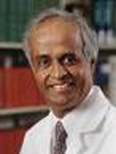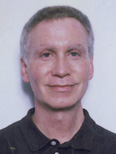
Medical Advisory Board
PMEDS develops and promotes a broad range of therapeutic plant-based medicines. To help in this effort and to provide expert advise on disease trends and developments, PMEDS has assembled a stellar Medical Advisory Board who are world renowned leaders in their respective fields.
PMEDS has integrated proven plants, herbs, minerals and elements with defined pharmacology, and which have modern clinical evidence of efficacy and satefy. The Company's thesis is that various traditional medical systems have existed for thousands of years and have used similar plants and herbs with midicinal properties. We have collaborated with key-opinion leaders of allopathic medicine from the US and Europe as well as the most renowned experts in phyto-chemistry and brought them together, for the first time,todevelop integrated plant-based therapies that can be applied inmainstream western medicine.
In the US, the National Institutes of Health (NIH), through many of its agencies like the Agency for Healthcare Research and Quality (AHRQ) and the National Committee on Complementary and Alternative Medicine (NCCAM), has commissioned primary research as well as meta-analyses of clinical data originating from numerous controlled studies to understand efficacy and safety of plant-based formulations that have been historically used in Eastern medicine.
James R. Gavin III, MD, PhD
James R. Gavin III is a Clinical Professor of Medicine at Emory University School of Medicine. He is also Executive Vice President for Clinical Affairs at Healing Our Village, LLC. He serves as President and CEO for Microislet, Inc., of San Diego, California, while also maintaining an office base in Atlanta, Georgia. From 2002 to 2004, Dr. Gavin was President of the Morehouse School of Medicine in Atlanta. He served as Senior Scientific Officer at the Howard Hughes Medical Institute (HHMI) from 1991 to 2002 and Director of the HHMI-NIH Research Scholars Program from 2000 to 2002.
Before joining the senior staff of HHMI, Dr. Gavin was on the faculty at the University of Oklahoma Health Sciences Center as a Professor and as Chief of the Diabetes Section; Acting Chief of the Section on Endocrinology, Metabolism, and Hypertension; and William K. Warren Professor for Diabetes Studies. He previously served as an Associate Professor of Medicine at Washington University School of Medicine in St. Louis, Missouri. He was a lieutenant commander in the US Public Health Service from 1971 to 1973 and today continues to serve as a reserve officer.
He is a past President of the American Diabetes Association and was voted Clinician of the Year in Diabetes by the ADA in 1991. He has served on many advisory boards and on the editorial boards of the American Journal of Physiology and the American Journal of Medical Sciences. He is on the board of trustees for Duke University, Emory University, Livingstone College, and the Robert Wood Johnson Foundation. In addition, he is National Program Director of the Harold Amos Faculty Development Program of the Robert Wood Johnson Foundation. Dr. Gavin is the immediate past Chairman of the National Diabetes Education Program and a member of the Board of Scientific Councilors for the Intramural Research Program of NIDDK-NIH. He also serves as Chairman of the Data Safety Monitoring Board for the VA Cooperative Diabetes Study.
MiChael H. Davidson, MD, FACC, FACP
Michael H. Davidson, a board-certified cardiologist, is founder, President, and Chief Executive Officer of the Chicago Center for Clinical Research, presently part of Radiant Research. He is Director of Preventive Cardiology and Atherosclerosis Research at Rush University Medical Center in Chicago, where he directs the multiple risk factor reduction lipid clinic, and a Professor in the Department of Medicine and Pharmacology at Rush University School of Medicine. Dr. Davidson received his medical degree from Ohio State University School of Medicine in Columbus and completed a cardiology fellowship at Rush University Medical Center.
An active researcher, Dr. Davidson’s clinical research background encompasses both pharmaceutical and nutritional clinical trials; and his extensive research on statins, novel lipid-lowering drugs, and nonpharmacologic risk factor reduction has established him as a key opinion leader in this area. His research also includes extensive work with food additives, dietary supplements, and health claim petitions to the US Food and Drug Administration (FDA).
A prolific author and lecturer on lipid disorders, nutrition, and atherosclerosis, Dr. Davidson has coordinated more than 700 clinical trials in areas of preventive cardiology; has published more than 130 articles in such medical journals as the Journal of the American Medical Association, the Journal of the American College of Cardiology, Circulation, and Atherosclerosis, and is the author of The Mobile Lipid Clinic: A Companion Manual. Dr. Davidson is a fellow of the American College of Cardiology and the American College of Chest Physicians.
Bala V. Manyam
Bala V. Manyam was born in Bangalore, India. With a love for botany, he initially attended an agricultural college, before deciding that Bangalore Medical College better suited his aptitude. After moving to United States, he completed a neurology residency and pharmacology fellowship at Thomas Jefferson University in Philadelphia. As a faculty member of the university, he established a Movement Disorders Clinic at the Wilmington Veteran’s Medical Center. Dr. Manyam also initiated research into Huntington’s and Parkinson’s diseases. In 1984 he became associate professor at the Southern Illinois University School (SIU) of Medicine where he established a Movement Disorders Clinic. During this period, he visited several ayurvedic centers in India and initiated an ayurvedic drug development program for Parkinson disease, overseeing product development and clinical trials. His work was among the first to receive funding from the newly established Office of Complementary and Alternative Medicine. He also received considerable support from the Research and Development Department, Zandu Pharmaceutical Works, Mumbai, India, and a grant from the Indo-US Program for the Development of Commercial Technology.
Dr. Manyam is currently at Scott & White Memorial Hospital and Clinic and Texas A&M University System Health Science Center College of Medicine, where he was awarded the Plummer-endowed position as Professor to develop a basic science laboratory and clinical center for movement disorders. He continues his research in ayurvedic drugs, which now includes the study of Ayurvedic drugs for Alzheimer disease.
Dr. Manyam has authored more than 170 publications, including book chapters in the areas of movement disorders, ayurveda, general neurology, and the history of neurology. He was on the editorial board of Neuroepidemiology and is currently on the editorial board of Phytotherapy Research. He has been a member of the NIH study section in the National Center for Complementary and Alternative Medicine and is currently a member of its National Advisory Council.
James A. “Jim” Duke
Born in Birmingham, Alabama, in 1929, James A. “Jim” Duke is a Phi Beta Kappa PhD (botany, 1961) graduate of the University of North Carolina. After serving in the military, Dr. Duke pursued his postdoctoral studies at Washington University and the Missouri Botanical Garden in St. Louis, Missouri, where he began his lifelong interest in neotropical ethnobotany. From 1963 to 1965, Dr. Duke was an ecologist with the USDA (Beltsville, Maryland), joining Battelle Columbus Laboratories (1965-1971) for ecological and ethnobotanical studies in Panama and Colombia. During this formative period, Dr. Duke lived with various ethnic groups, closely observing their deep dependence on forest products. His experience led him to write the Isthmian Ethnobotanical Dictionary, the first of more than 2 dozen books, which catalogs hundreds of Isthmian plants and their uses. It is now available as the TICO database on his USDA Web site: www.ars-grin.gov/duke.
Rejoining the USDA in 1971, Dr. Duke had various assignments relating to cancer screening, crop diversification, medicinal plants, designer foods, and energy plant studies in developing countries. A popular lecturer on the subjects of ethnobotany, herbs, and medicinal plants, he has taped dozens of TV and radio shows. On September 30, 1995, he retired after a distinguished career with the USDA. Before retiring, Dr. Duke brought his Father Nature’s Farmacy database online at USDA www.ars-grin.gov/duke. It is now one of the most frequently consulted databases of the Plant Genome Project at the USDA. Dr. Duke has already doubled the data content in an interactive database he maintains at home as Director of Duke’s Herbal Vineyard, Inc. The database is especially useful for determining the biological activities and healing potential of food, herbs, medicinal plants, and spices.
Dr.Joel Lippman
Dr.Joel Lippman is board certified in Obstetrics and Gynecology and his practice experience spanned the spectrum of private practice, academic medicine and the public sector. Dr. Lippman has 18 years of experience in the pharmaceutical and device industries. He was Vice President of Medical Affairs and Chief Medical Officer at Ethicon and Vice President of Clinical Trials at Ortho-McNeil Inc. Prior to that he was Director, Clinical Development within the Medical Affairs group at Wyeth-Ayerst Laboratories. He has extensive experience in multiple therapeutic areas including women's healthcare, particularly contraception and hormone replacement therapy.
Dr. Lippman received his Medical degree from New York Medical College, his Masters Degree in Public Health from The Harvard School of Public Health and completed his internship and residency at The University of Connecticut Affiliated Hospitals System.








